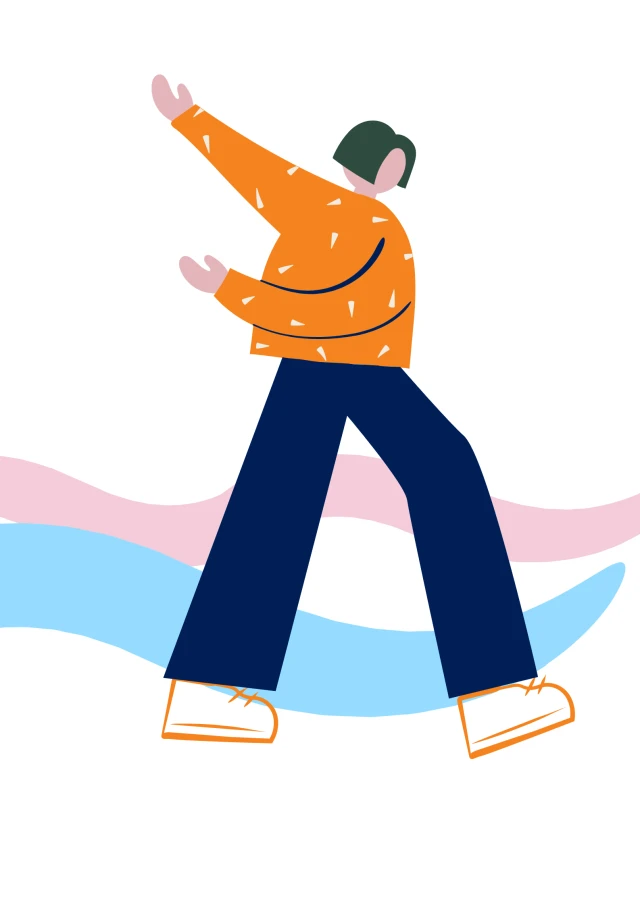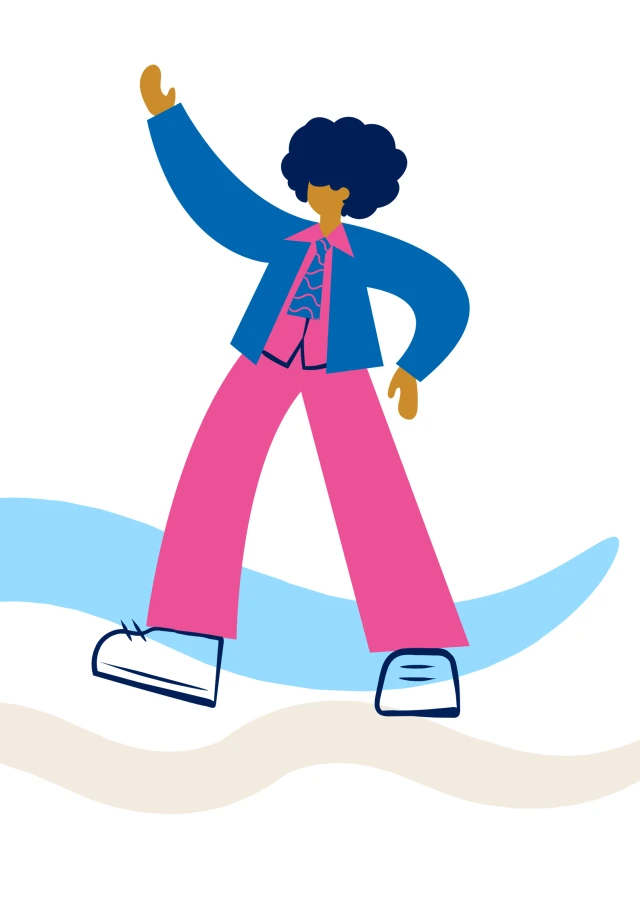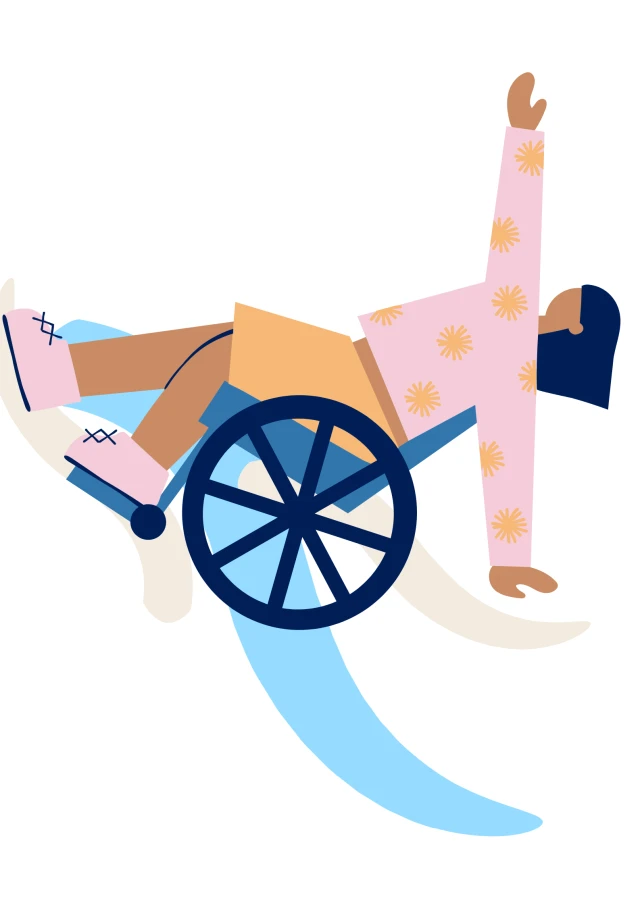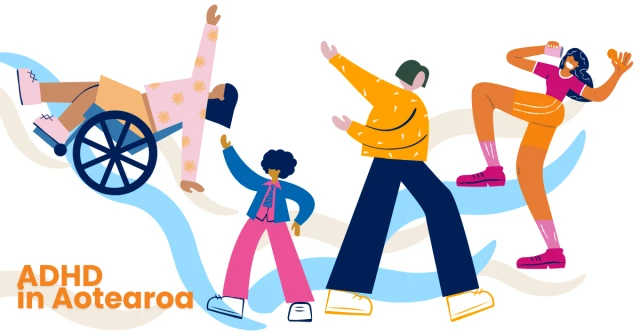ADHD in New Zealand
Learn to navigate life with ADHD
On this page
Māori describe ADHD, as Aroreretini: The ability to focus on lots of different things at once. It comes with its own set of challenges, living as a neurodiverse person in a neurotypical world, but there are resources and tools out there to support you.
What is ADHD?
ADHD stands for Attention Deficit Hyperactivity Disorder, this name can be confusing as not everyone displays ‘hyperactivity’ in the same way. ADHD relates to the development of the frontal lobe of our brains. This can make some challenging activities really easy for people with ADHD, and some simple activities, feel nearly impossible.
You could look at a self-assessment if you've done a bit of research or feel like you struggle with:
maintaining attention or lose hours and hours in how focused you are
your ability to organise, stick to a plan or turn up on time
feeling things very deeply or not feeling much at all when you think you should
Take a look at our self-assessments section at this link.

Getting an ADHD Diagnosis
If you think you or your child may have ADHD, the first step is getting a diagnosis. This might sound daunting, but it’s important because it helps you understand why certain things might be tricky and what can be done to help. A diagnosis isn’t just putting a label on yourself or your loved one, it gives you the framework to allow you to better communicate your experiences and take proactive steps to make everyday life easier.
There are also a number of things that can be ‘comorbidities’ with ADHD, meaning if you or a loved one are diagnosed, your medical professional may also know to look out for other things that are commonly associated with ADHD. Things like Alexithymia (trouble with understanding emotion), Dyslexia (word recognition), Dyscalculia (number recognition), Oppositional Defiance Disorder (struggling with authority figures), and Autism.
Having more knowledge about how you or a loved one process the world can create new opportunities to grow and live a full life.
Where to start?
Start with a visit to your family doctor. They can refer you to a specialist like a psychologist or a paediatrician who is experienced in diagnosing ADHD. Otherwise you can go direct to some providers. They’ll likely ask you to take a self-assessment test or do the test (or a variation of it) with you.
What’s the difference between public vs private?
In our health system, there is a long wait to see a specialist, and the costs can be a barrier. There are private ADHD clinics in Auckland, Wellington, Christchurch, and beyond, and you can also find online services that do assessments via video call.

Take a look at the private diagnosis organisations in NZ
Medication for ADHD
Some people with ADHD find that medication really helps them focus and get things done. There are different types of medication and finding the right one can take a little trial and error.
Talking to your doctor: If you or your child gets diagnosed with ADHD, your specialist or GP might suggest trying medication. They’ll help you find the right type and dose.
Pharmac
In New Zealand, some ADHD medications are subsidised by Pharmac, which means you pay less. It's worth having a chat with your doctor to find out what’s available.
ADHD Support Groups and Online Communities
Sometimes, the best support comes from talking to other people who really get it. ADHD can feel isolating at times, but there are many friendly communities, both in person and online, where you can connect with others facing similar challenges.
ADHD New Zealand is a great resource for all things ADHD. They offer online support groups, helpful information, and even events where you can meet others in the ADHD community.

Facebook Groups
There are several Kiwi ADHD Facebook groups where you can ask questions, share tips, and connect with others.
Check out popular Facebook groups listed on our community support groups page.
Support for tamariki (kids) with ADHD at School
If your child has ADHD, school can sometimes be a bit of a challenge. However, there are plenty of ways to help them succeed in the classroom.
Some schools can get extra funding for teacher aides or specialist teachers who work with children who have ADHD. This extra support can make a big difference for kids who might struggle with focus or staying on task.
Workplace Support for Adults with ADHD
Workbridge
This organisation helps people with ADHD and other conditions find and keep jobs. They offer advice, job coaching, and even help with workplace adjustments, such as flexible hours or specialised equipment.
Flexible Work Options
In New Zealand, employees have the right to request flexible working hours, which can be really helpful if you find that certain times of the day are better for your focus or energy levels.
Employee Assistance Programmes (EAP)
Many workplaces offer free access to counselling and support services through EAP. If you’re finding things difficult at work, this can be a great resource to tap into.
Living with ADHD in New Zealand doesn’t have to be a lonely or overwhelming journey. Whether it’s getting a diagnosis, joining a support group, using helpful apps, or finding workplace support, there are many tools and resources available to make life easier. Connecting with others who understand ADHD, using practical strategies, and seeking the right help can make all the difference.
